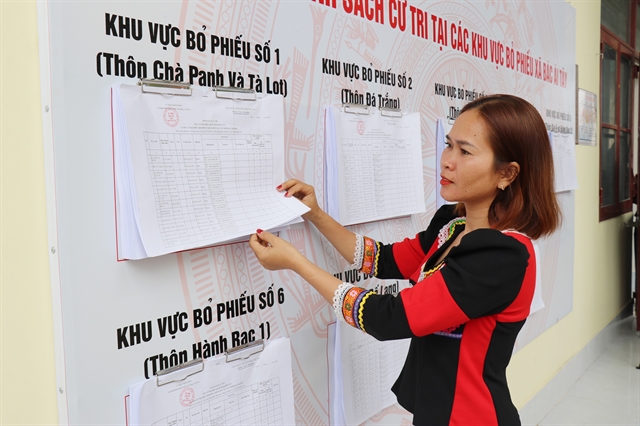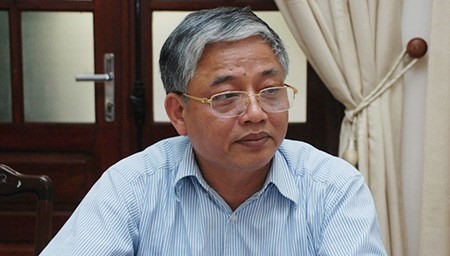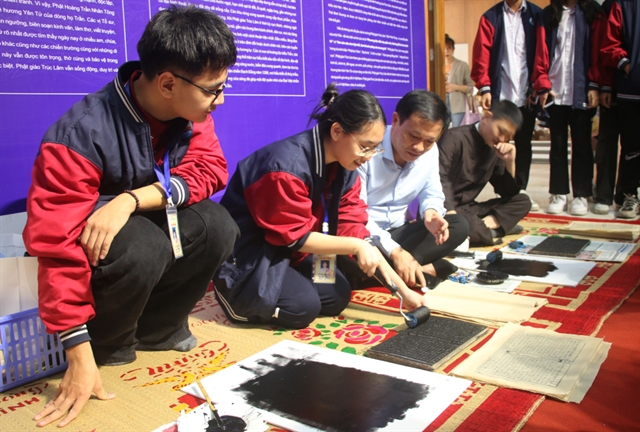 Opinion
Opinion

Doãn Mậu Diệp, Deputy Minister of Labour, Invalids and Social Affairs, tells the Hải quan (Customs) Newspaper that the country plans to increase the quality of workers sent abroad
 |
Doãn Mậu Diệp, Deputy Minister of Labour, Invalids and Social Affairs, tells the Hải quan (Customs) Newspaper that the country plans to increase the quality of workers sent abroad
How good are the workers we are sending abroad?
I have to admit that Vietnamese guest workers abroad have several limitations, including weak foreign language skills, expertise and professionalism. Such weaknesses can be attributed to the insufficient, short-duration training at home before they leave the country.
And what is the situation with Vietnamese labour export firms?
Unhealthy competition between the labour export firms and foreign peers has led to the low quality of Vietnamese guest workers and the high costs they have to bear in order to win a contract to work abroad.
In addition to the above-mentioned reasons, loose management of the mother labour export companies has led quite a few affiliates to fail to follow the required procedures. So the workers are not properly trained for the jobs they have to do abroad.
However, the weakest point is that we have a large number of companies involved in labour exports, but their training capacity is limited, as is their understanding of Vietnamese regulations and that of the host nations. In particular, they lack on the spot legal specialists to help workers in need.
How do you respond to the complaints that “small conditions” have become a hurdle for many labour export companies in obtaining a licence?
Several companies have adopted good policies to support candidates to go to work abroad, like Enhause or Leesco. These two companies have offered workers scholarships to acquire skills and knowledge before going to work abroad. On the other hand, some companies deliberately ask candidates to pay extra money if they want the opportunity.
Local authorities play a very important role in the recruitment of workers to go to work abroad. But I am not sure if the labour export companies are supporting the local authorities.
In reality, not all candidates attending training courses will be able to work abroad. So some of them lose the money they paid before joining the courses.
The Ministry of Labour, Invalids and Social Affairs (MOLISA) will surely protect the candidates’ legal interests, even if, for one reason or another, they are not able to work abroad. In a worst case scenario, the ministry will revoke the operating licence (of labour export firms).
Can you tell us a bit about Việt Nam’ plan to send high quality workers abroad?
The international labour market is diverse. It has different labour segments. If we want to send high quality workers abroad, we must train our workers very carefully.
We need to be able to make accurate market projections. Our representatives abroad have to regularly update information about the job market in the countries that they are posted. This information is a very important input for labour export companies, so that can help workers develop the needed skills and do a competent job.
The Prime Minister has instructed the ministry to develop a project to send Vietnamese workers who have attended vocational training courses to work abroad. But there has been no talk of projects to send Vietnamese university graduates to work abroad. Nowadays, many countries are facing high unemployment and there is an imbalance between the supply of university graduates and market demand for their services.
What is most important now is that many foreign labour management boards have not updated information about labour shortages in each segment or in a particular occupation. If such information is available, it will be a very good input for us to prepare training courses for potential guest workers. — VNS




